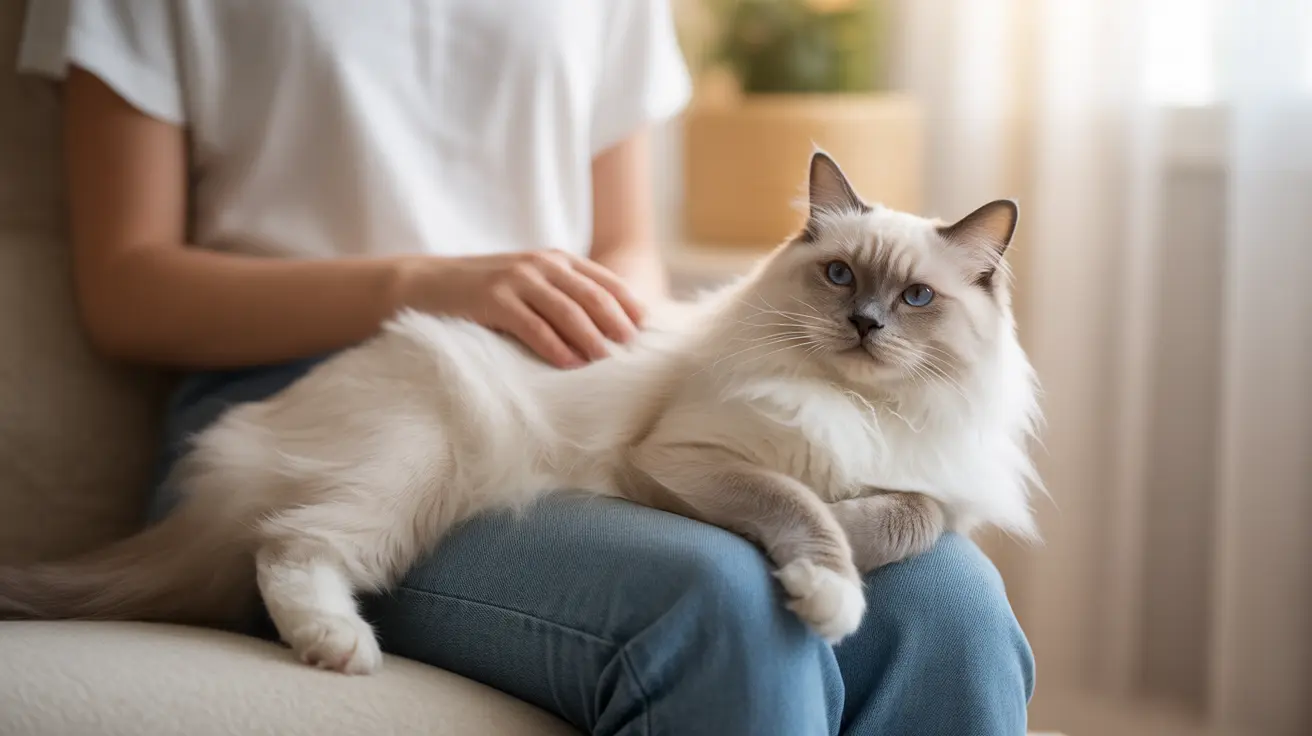Understanding Your Cat's Behavior
If you've ever had your cat fart while sitting on your lap or cuddling with you, you're not alone. While it might seem like your feline friend is deliberately targeting you with their gas, the reality is much simpler and less intentional. This common occurrence often leaves pet parents wondering about the meaning behind this somewhat awkward behavior.
The truth is, cats don't fart on their owners purposefully. Like all mammals, cats experience natural digestive processes that sometimes result in the release of intestinal gas. When this happens while they're perched on your lap or near you, it's purely coincidental.
The Science Behind Cat Flatulence
Feline flatulence occurs when gases build up in the digestive tract during the normal breakdown of food. These gases need to be released, and unlike humans, cats don't have social conventions about when or where this happens. Most cat farts are actually silent and odorless, which is why you might not notice them as frequently as you think they occur.
Common Causes of Cat Flatulence
Dietary Factors
The most common reason for excessive cat flatulence is diet-related issues. Certain foods can cause more gas production than others, including:
- Low-quality cat food with artificial fillers
- Dairy products (many cats are lactose intolerant)
- Table scraps
- Foods high in fiber
- Spoiled food they might have accessed
Medical Conditions
Sometimes, frequent flatulence can indicate underlying health issues such as:
- Inflammatory bowel disease
- Food allergies or sensitivities
- Parasitic infections
- Gastrointestinal infections
- Digestive system disorders
Prevention and Solutions
Dietary Adjustments
To reduce your cat's flatulence, consider these dietary modifications:
- Switch to high-quality, easily digestible cat food
- Implement slow feeding techniques to prevent air swallowing
- Avoid giving human food or dairy products
- Make dietary changes gradually to prevent digestive upset
Environmental Considerations
Stress can affect your cat's digestive system, so ensure a calm environment by:
- Maintaining regular feeding schedules
- Providing a quiet eating area
- Reducing environmental stressors
- Ensuring access to clean water and litter boxes
When to Consult a Veterinarian
While occasional flatulence is normal, certain signs warrant veterinary attention:
- Excessive gas accompanied by other symptoms
- Changes in appetite or behavior
- Diarrhea or vomiting
- Particularly foul-smelling gas
- Visible discomfort or bloating
Frequently Asked Questions
Why does my cat sometimes fart on me when sitting on my lap?
This is purely coincidental. Cats often seek close contact with their owners for comfort and affection, and any flatulence that occurs during these moments is unintentional.
Can my cat's diet cause increased farting, and which foods should I avoid?
Yes, diet significantly impacts flatulence. Avoid dairy products, table scraps, and low-quality cat food. Stick to high-quality, species-appropriate cat food designed for optimal digestion.
How can I tell if my cat's flatulence is due to a food allergy or intolerance?
Look for additional symptoms like vomiting, diarrhea, excessive grooming, or skin issues. If you suspect a food allergy, consult your veterinarian about conducting an elimination diet.
When should I be concerned about my cat's farting and see a vet?
Seek veterinary care if flatulence is excessive, particularly smelly, or accompanied by other symptoms like changes in appetite, lethargy, or digestive issues.
Does stress or anxiety cause my cat to pass gas more frequently?
Yes, stress and anxiety can affect your cat's digestive system and lead to increased gas production. Creating a calm environment and maintaining regular routines can help reduce stress-related digestive issues.
Conclusion
While having your cat fart on you might not be the most pleasant experience, understanding that it's a natural, unintentional bodily function can help put your mind at ease. By maintaining a proper diet, reducing stress, and monitoring for any concerning symptoms, you can help manage your cat's digestive health and minimize excessive flatulence.






